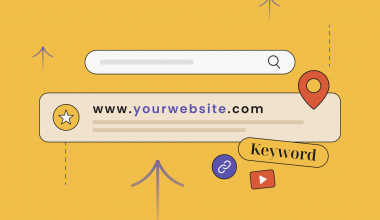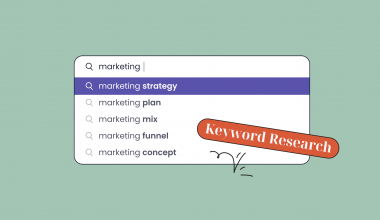As the world of online marketing becomes more and more complex, local businesses are often left wondering how they can compete. After all, if you can’t be found online, you can’t keep up with digitalization. The good news is that there is a way for local businesses to level the playing field and that’s through local SEO.
But what is local SEO, and how do you optimize your website and online presence for it?
Never fear, we’ve put together a simple handbook for local SEO for small businesses. In this article, we’ll cover what local SEO is, why it’s important, and some easy tips and tricks you can use to get started.
What is Local SEO?
Local SEO is the strategic process of optimizing your website’s visibility on search engines for local Internet users to be able to find you. This is to make sure that the people living around your business area are able to search for your website when they type in the relatable keywords on the search engines. It is best used for businesses who has a brick-and-mortar location as your ideal consumers are the ones who are near to you.
How does Local SEO help SMEs?
Well, some Small and Medium Enterprises (SMEs) might assume that it is a waste of time to optimize their website for local SEO because they might not have the manpower to do so. But do you know, with just a few simple steps, you can get a whole lot of benefits from it than you can ever imagine?
Want to know how local SEO can help your business? Then read on!
I) High Visibility
Users commonly only click on the first few that appear at the top of the search engine result pages. That is why it is important to optimize your website for local SEO so that it ranks on top of the page and gets higher visibility.
Don’t you want your website to be the first one that shows up when someone types “[your service] + [your location]”?
Once done right, your website would not only get higher exposure and visibility but more traffic and sales conversions.

II) Time and Cost-effective
Traditional advertising like flyers, brochures and billboards could cost a fortune and a long time to produce and get a return on investment. Therefore, when compared, local SEO is more time and cost-effective.
III) Reach Customers with High Purchase Intentions
Those users who proactively search for your related services/products in your business area are those with high purchase intention. With local SEO, you’ll be able to reach a large number of consumers who are ready to buy your services/products.
IV) Better Competition against Conglomerates
For SMEs, it will be fierce competition to rank generic keywords such as “coffee shop” or “boutique”. This is due to the large conglomerates who have the budget and manpower to undergo their vigorous SEO keyword targeting. Take Starbucks and H&M for example. How are you going to go against these international companies?
But when you include the location tag in these keywords, there is a fair chance that you will get to rank. Long-tail keywords that are as specific as “minimalist coffee shop in Kajang” or “light academia boutique in Cheras” could win you a spot on the top of the search result page.

How to optimize your local SEO?
I) Sign up for a Google My Business Listing
The very first thing to do when you optimize your local SEO is to claim your business on the Google My Business listing. This helps you to establish your presence on the search engine and increase your business exposure on Google Maps for free. Be sure to fill in all the necessary details to optimize your local SEO which includes your business’s name, website, images, address and contacts.

II) Optimize your website
Next, make sure you optimize your website. This includes checking if your address is listed correctly on your website. You don’t want search engines to capture the wrong info and target the wrong audience for you, right?

And on that note, it is also advisable to connect Google Maps to your website. This allows your customers to locate your shop easily and plan their route to reach you. Likewise, you should also optimize your website to be mobile-friendly. Many users nowadays largely use their phones to search for queries instead of their laptops. Moreover, people who search for locations are mostly people who are on the go and ready to go over to that particular place.

III) Ensure consistency in your NAP
No, it’s not a nap! Its Name, Address and Phone number (NAP). Make sure your business name, address and phone number complete with area code are consistent across all the web pages and social media platforms you have online. This is to allow Google’s bot to better crawl your HTML text and achieve good search results.
For instance, if you have used the name “Becky’s Coffee Shop” on your website, then you should use the same on your social media. Do not change it to “Becky’s Cafe” even though the use of “Coffee Shop” and “Cafe” can be interchangeable.
IV) Optimize the location on your social media accounts
You should also remember to insert and tag your location on your brand’s official social media accounts. The rule of thumb is to list it in your bio and insert a location tag in your social media posts.
Another tip to optimize the location is to use specific location hashtags on your posts. For example, if you are a creative agency in Malaysia, then be sure to insert the hashtag #creativeagencymalaysia in all your posts.

V) Add address on local directory websites
In Malaysia, some of the prominent online local directories are Business List, Yellow Pages, Malaysia Business Directory and One Stop Malaysia. If you want your business to be known, you should insert all the necessary details into these websites. Consistency and verification are the keys when doing this. You want to make sure that the citations are accurate and correct without any discrepancies like spelling mistakes, wrong phone numbers or street names.
Here are some other niche online directories you could consider signing up for:
VI) Ask for Google Reviews
If you want to optimize it to its full potential, we would also suggest you ask for your current customers’ Google reviews. Search engines take into account the number of stars you are rated on Google reviews to help push the most relatable and high-quality businesses. It also helps influence how other new consumers see your brand before they even visit your physical shop.
In conclusion, Local SEO can help small businesses get discovered online by their local customers. You should try your very best to find ways to make your store, service or product discoverable online via search engines. After all, everyone is online now.










